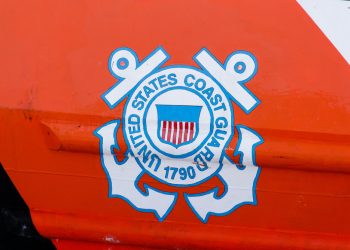USCG issued a Safety Information Bulletin as a reminder to operators that ships discharging ballast water into the waters of the US must comply with the country’s requirements
Recently, the National Ballast Information Clearinghouse has received a number of reports indicating that untreated ballast water exchanges had been undertaken by vessels beyond their compliance date and without a valid Coast Guard extension. An investigation into these circumstances has found that “Statement(s) of Compliance for Ballast Water Management” endorsed for “sequential exchange method” [Regulation D-1 of the BWM Convention] have been misinterpreted as applying to the U.S. BW regulations. USCG reminds that these Statements of Compliance are issued under the provisions of the BWM Convention, which the United States is not signatory to.
Vessels beyond their compliance date are reminded to employ one of the following BWM methods, when operating in the waters of the United States:
- Use a Coast Guard-approved ballast water management system (BWMS);
- Use only water from a U.S. public water system (PWS);
- Use an alternate management system (AMS) [NOTE: Only valid for 5-years from compliance date];
- Do not discharge BW into waters of the United States (includes the territorial sea as extended to 12 nautical miles from the baseline); or
- Discharge to a facility onshore or to another vessel for purposes of treatment.
Masters, owners/operators, agents and persons-in-charge are further reminded to maintain an up-to-date vessel specific BWM plan, as detailed in 33 CFR 151.2050(g) and to provide training on the application of ballast water and sediment management and treatment procedures as required by 33 CFR 151.2050(h).
These plans should include options for the Master to consider if the BWMS stops operating or becomes unexpectedly unavailable during a voyage, and the need to contact the cognizant COTP or District Commander as soon as possible to discuss options not addressed above.
USCG reminds that violations of the U.S. ballast water regulations may result in costly delays, environmental deficiencies, civil enforcement action, and ineligibility for the QUALSHIP 21/E-Zero designation.
Explore more at the official policy letter:































































